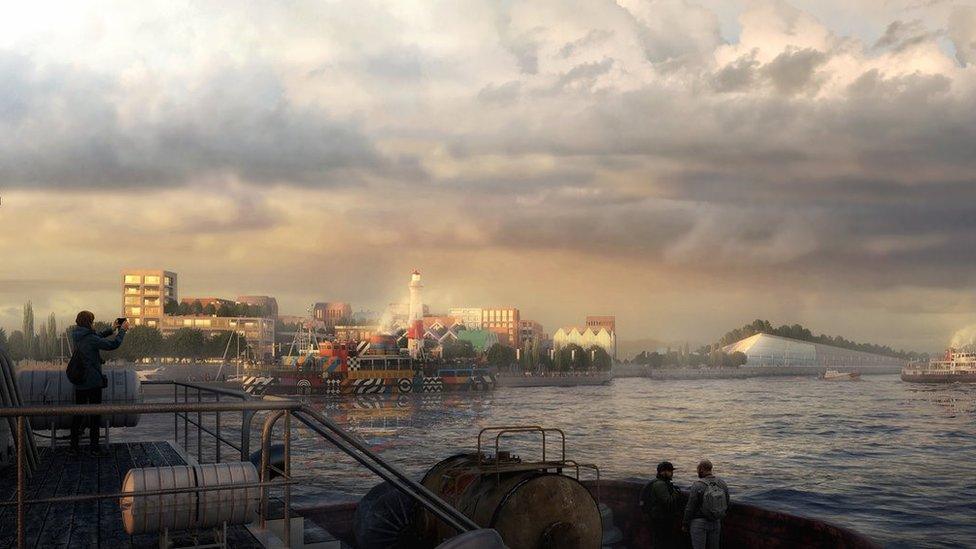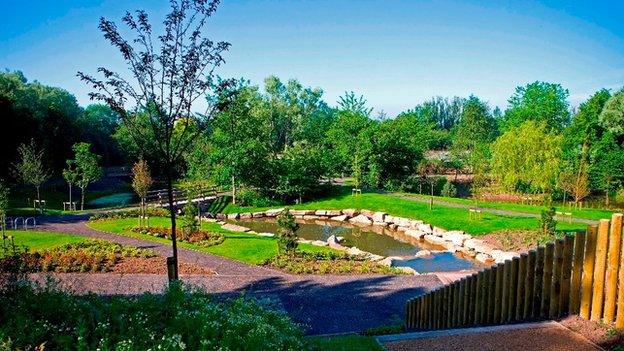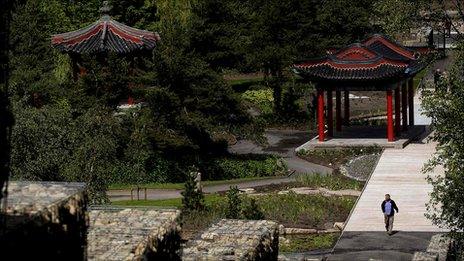Liverpool's Festival Gardens could become giant water park
- Published

Liverpool City Council is looking for a company to operate and invest in a water park
Liverpool's derelict Festival Gardens could get one of the UK's largest indoor water parks as part of a regeneration plan.
New documents for the site, three miles south of the city centre, show the council is looking to have its viability tested by experts.
The area is described as "one of the last remaining waterfront development opportunities in Liverpool".
The council bought the site for £6m in 2015 with plans for a hotel and houses.
The local authority has now posted an advert, external looking for a company to operate and invest in a water park, according to the Local Democracy Reporting Service.
A "residential area, hotel, car park, various leisure activities and parkland" could also be included.

Plans for the site also include parkland and formal gardens
The advert says: "The objective for the Festival Gardens site is to create a significant visitor attraction with a city, regional and nationwide catchment.
"One of the main planned leisure facilities is an indoor water park destination, which would be the largest of its kind in the UK."
The city council said it has been working with Department of Trade and Industry on developing the site and the project now forms part of the Northern Powerhouse Investment Portfolio.
The plan is to split it into three areas:
Development Zone - 28 acres of fenced-off land with no public access, containing the remains of Festival Gardens dome and plaza, and landscaped waterfront
The Gardens - 25 acres of formal Chinese and Japanese Gardens
Southern Grasslands - 37 acres of derelict former Festival Gardens land
The land is a former tip site that was transformed to become the home of the Liverpool International Garden Festival in 1984.
Mayor Joe Anderson said it was viable to clear the site, despite the estimated £22m cost.
- Published3 June 2015

- Published23 December 2011

- Published19 July 2011

- Published9 February 2011
